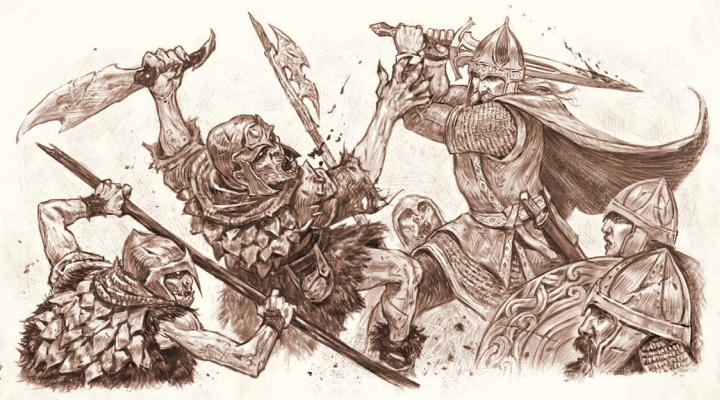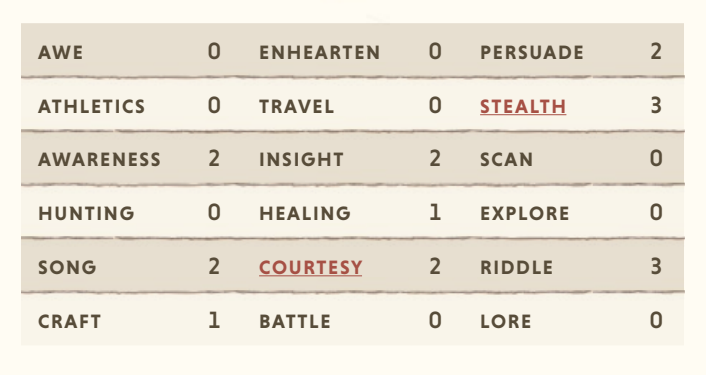Hobbits
Hobbits are much smaller than Men, even smaller than
Dwarves, and might be mistaken for children of Men by those
who do not know of their existence. They have never been
warlike, but for all their gentle appearance they are surprisingly tough, and difficult to intimidate or kill. A merry folk,
Hobbits possess a cheerful spirit and a friendliness that makes
them good companions.
Hobbits do not abandon their comfortable lives easily, but
when they do they usually wait for their coming of age at 33.
A particularly reckless fellow might feel the call to adventure
when in their tweens, as Hobbits call their twenties. When
pushed to resort to weapons, Hobbits choose short swords and
hunting bows, which they can shoot with uncanny precision.
CULTURAL BLESSING — HOBBIT-SENSE
Hobbits have learned their place in the world a long time ago,
and they display a robust capacity for insight that many folks
mistake for lack of courage. No visions or wild fantasies can
tempt them, as they do not seek power or control over others.
Your WISDOM rolls are Favoured, and you gain (1d) on
all Shadow Tests made to resist the effects of Greed.
… they have a fund of wisdom and wise sayings that men have mostly
never heard or have forgotten long ago.
HALFLINGS
Due to their reduced size, Hobbits cannot use larger weapons
effectively. The weapons available to Hobbits are:
Axe, bow, club, cudgel, dagger, short sword, short spear,
spear. Additionally, Hobbits cannot use a great shield.
STANDARD OF LIVING — COMMON
COMBAT PROFICIENCIES
Copy the following Combat Proficiency ranks onto the character
sheet, selecting a preferred Proficiency when offered a choice.
Bows OR Swords 2
Choose one Combat Proficiency 1
DISTINCTIVE FEATURES
Choose two Distinctive Features among those listed: Eager,
Fair-spoken, Faithful, Honourable, Inquisitive, Keen-eyed,
Merry, Rustic.
LANGUAGES AND TYPICAL NAMES
Hobbits speak only the Common Speech, preserving the use
of a few words and names of their own forgotten tongue.
Names are composed of a first name and a family name. First
names for men are usually simple and short, with women
being often given names of flowers or precious stones, but
among the older families a custom survives of giving more
heroic and high-sounding names, whose origin can be traced
back to a time before the Shire.





Comments